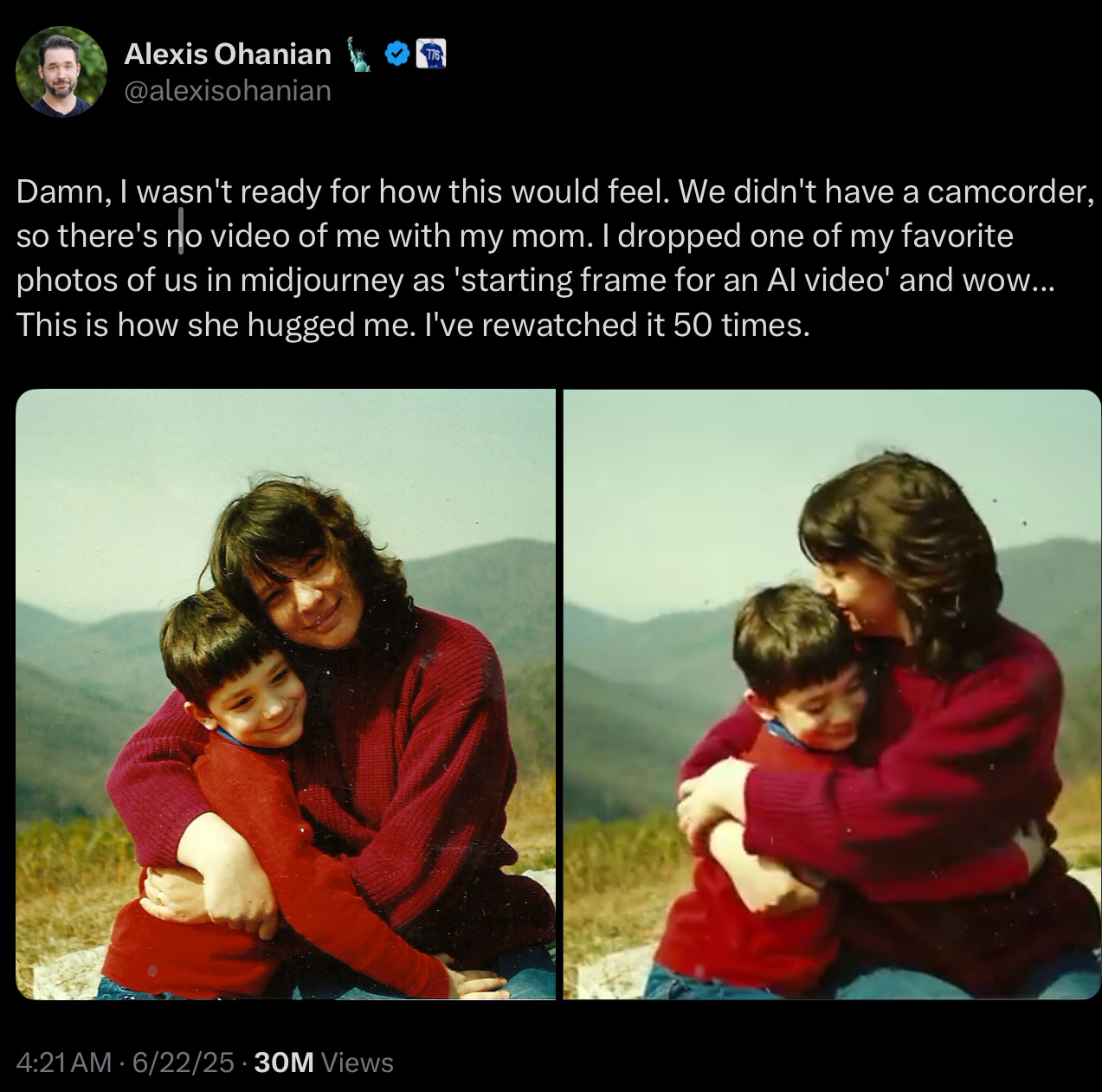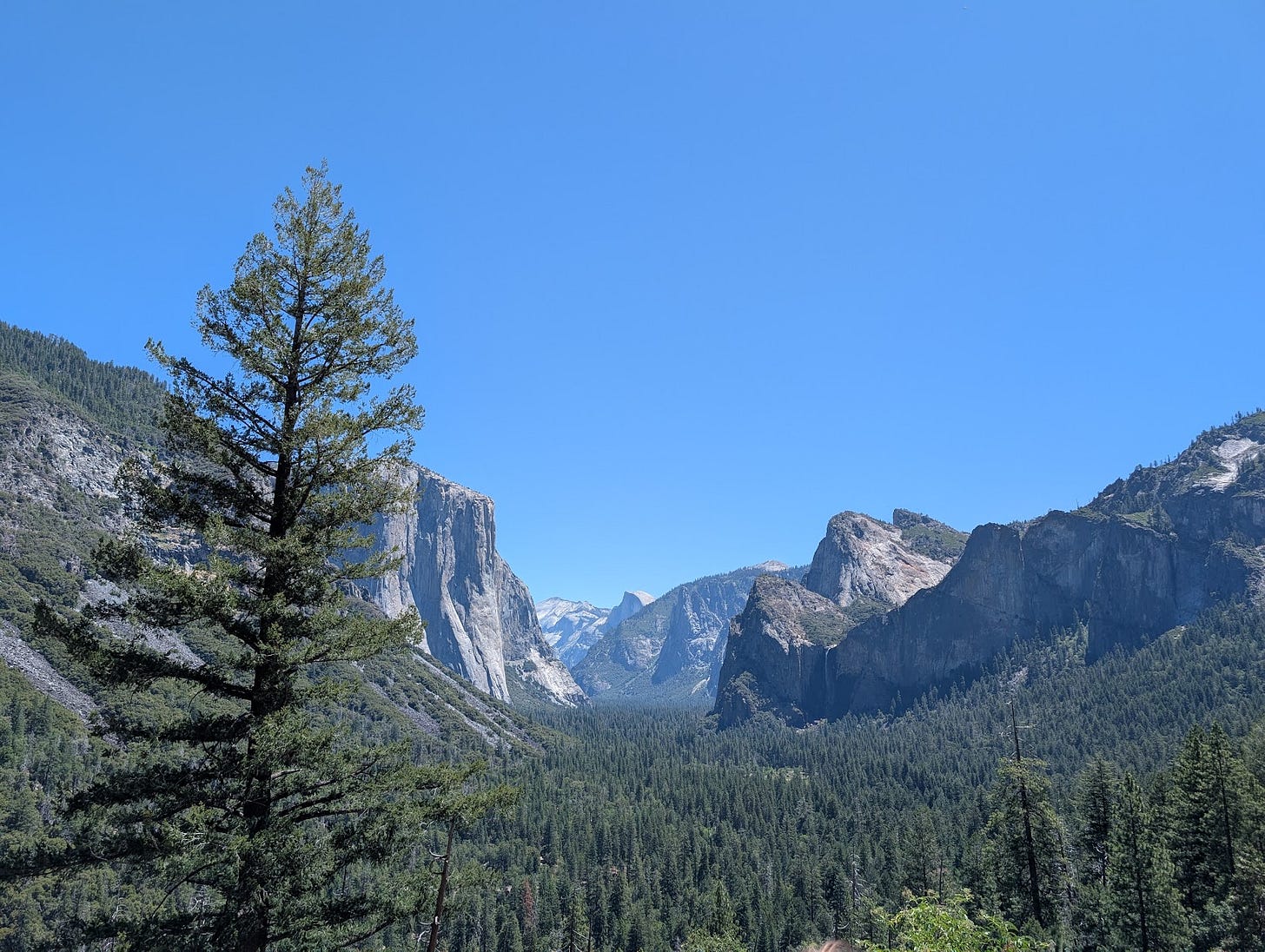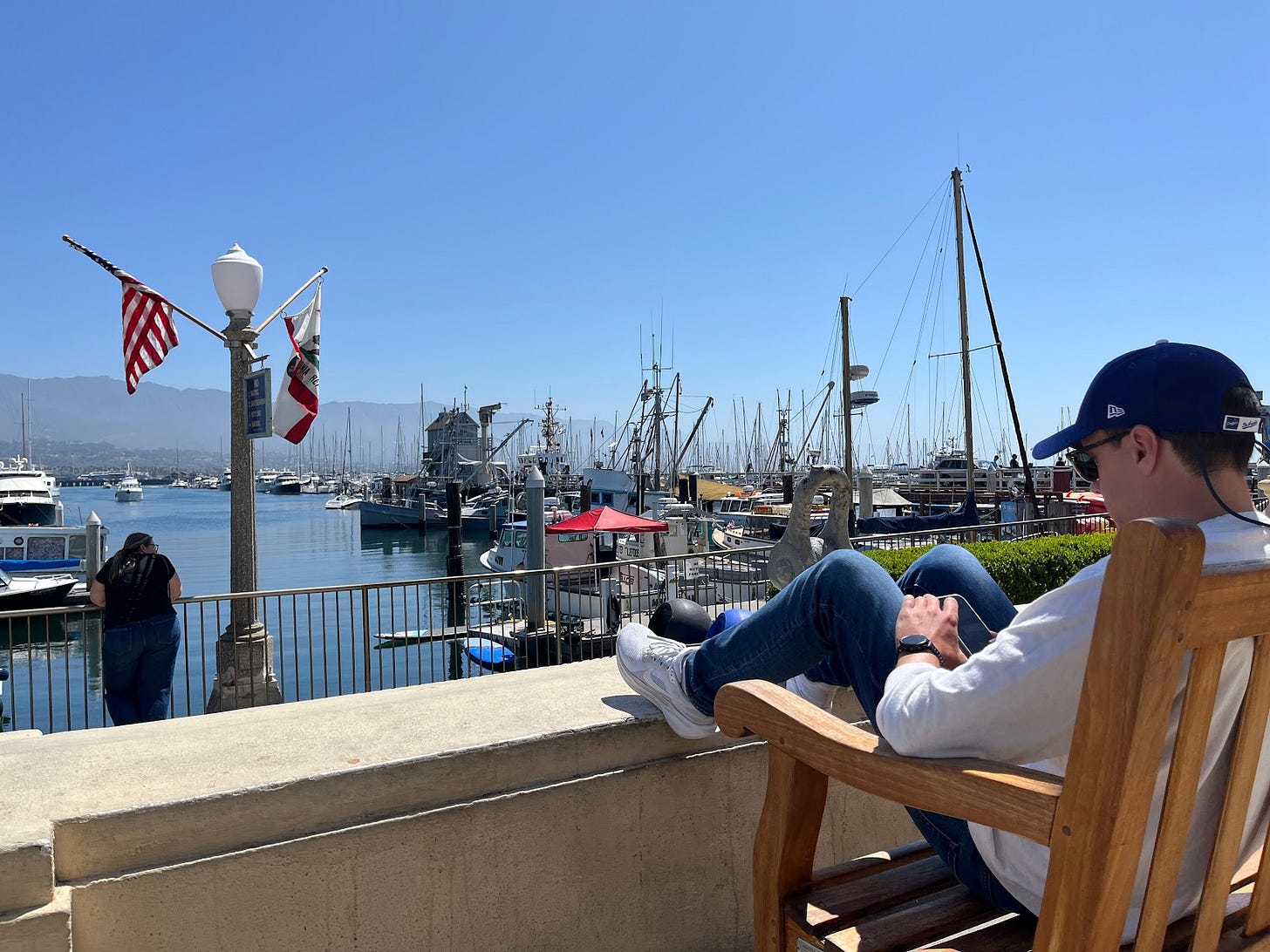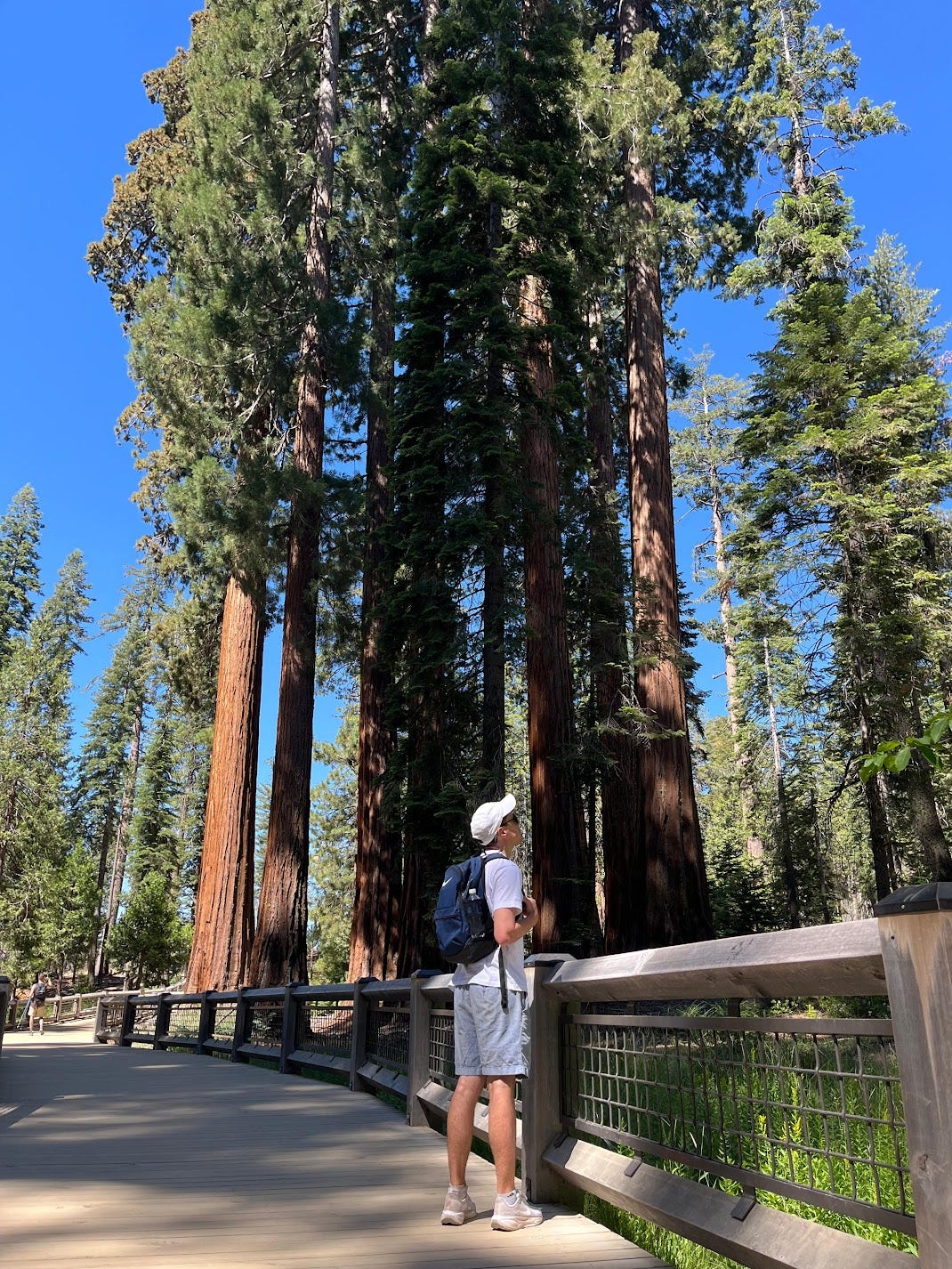Sunday Edition #6 - Modifying and Generating Memories
Also: More California, Copyleft, and NYC Congestion Pricing Success
Welcome to the Sunday Edition where I share interesting articles and links alongside what I’ve been up to!
Modifying Memory
Some of the commentary pointed out how dangerous this: to manipulate one’s memory like this. I understand that. To some extent, memory *is* sacred. Every time we think about our past, we rewrite a part of it. There’s for example, some songs I choose not to listen to, not because I don’t want to experience its attached emotions, but because every time I do, it dilutes the memories associated with it.
…but, if there’s one thing I’m realising as I’m getting older is that from far away (in time and space), the difference between a memory and story becomes negligible. It’s not to falsify the past, but we’ve already told ourselves stories about our own memories. So, if we’re aware to the extent that our memories are slowly becoming stories over time, then being able to modify them isn’t that *new* from a meta-cognitive perspective.
I’m sure that for some, having this ability to modify their memories will cause them to get lost in the throes of their past, but if you’re aware to the extent that your memories aren’t always reality as it was, then we’ve inoculated ourselves a bit to the potential negative impacts of generative memory modification.
PS. If you’re interested in deeper writing on memory and technology, do follow Kei Kreutler!
Crypto, Crime, and State Coercion
I enjoyed this perspective from Henry Farrell, especially in context of the Trump administration’s flagrant use of crypto as insider games for influence. Admittedly, I’ve always found myself in a weird political niche with this technology.
As I read the history, crypto’s political project begins, quite explicitly, in efforts to curtail the power of the state or do away with it altogether.
While many felt this up until crypto’s (direct) ingratiation with the state, I’ve always seen it as a tool that could help aid *any* form of coordination, whether it be voluntary *or* state driven. If you are able to stand up infrastructure that the state provides (like money), then the technology can be a check against the state’s abuse of it. It’s a boat that could either be the only boat you have (where state power is non-existent), a lifeboat (when the state turns on its people), or a pleasure boat (when the state works fine but it is not covering *all* use cases of the technology). In the latter case is where we’ve seen a lot of adoption: speculation, scams, stablecoins, programmable finance, NFTs, etc. While the former use-cases (privacy, programmable ledgers of record, global bank accounts, remittance, etc) are there, but less visible as narrative.
Which gets to a later point in the article:
Projects like Bluesky reflect a weird mindmeld of libertarianism and the left, originating in crypto, but with emphatic left-leaning values, that we haven’t really begun to think about in coherent ways.
There is something new and complicated beginning to take shape, which melds crypto’s strong distrust of centralized arrangements with more left leaning political values. I don’t know whether it is going to succeed, or how it intersects with traditional electoral politics.
I don’t really know how we’ll get there, but I hope in time we’ll get more support from liberal left in the value of censorship-resistant technologies that helps with circumstances such as 1) protecting transgender access to life-saving medication by maintaining the free flow of money, 2) allowing unions to self-organise without potential threats of bank accounts being shut down, 3) allowing access to open financial tools (like collateralized loans) when a state or credit score deems you second class, 4) allowing unique corporate models (artist DAOs for example), where states are not equipped to provide it, etc.
Congestion Pricing Success
The six month report on congestion pricing NYC is in and it looks amazing.
-$500M in revenue in 6 months
-Rush hour delays at Holland Tunnel down 65%
-Subway ridership up 7%
-Bus ridership up 12%
-LIRR ridership up 8%
-Metro-North ridership up 6%
-Access-A-Ride ridership up 21%
Just really glad it’s survived the expected onslaught until now. More of this, please!
More Copyleft
Vitalik recently wrote on why he has changed to lean more towards copyleft licensing of software (in short, copyleft requires derivative works to also share the license).
I've usually been an advocate of maximalist freedom of software use (like MIT where even commercial use is allowed), but I must admit, that this reasoning makes me tilt more in favour of copyleft.
Fundamentally, if you assume economies of scale, then by simple mathematical reasoning, nonzero openness is the only way that the world does not eventually converge to one actor controlling everything.
In some sense. Times have changed and software can help avoid winner-takes-all economies of scale.
What I’ve Been Up To
More California road tripping this week, so just been present and offline with good friends. All together, we drove 2,200 km over 14 days. For this week, we made it from LA (Santa Monica) → Monterey → Yosemite → Napa. I dearly love California. So, with not much else to share, here’s some more photos from the journey. :)
Back to a more regular schedule next week. 🤗
🎵 Listening - Aisha Badru - Mind on Fire (Franz Matthews Remix)
Part of the great fun of doing a road trip with friends is delving much deeper into each person's musical tastes. This track courtesy of my good friend Naomi. Enjoy!
That's it for this week, friends. Hope you enjoy a lovely sunset!
Simon







Love reading these weekly updates with there little snippets of wisdom!
You might enjoy my recent riff on identity, memory and meaning https://www.wordsfromwip.com/p/on-identity-memory-and-meaning